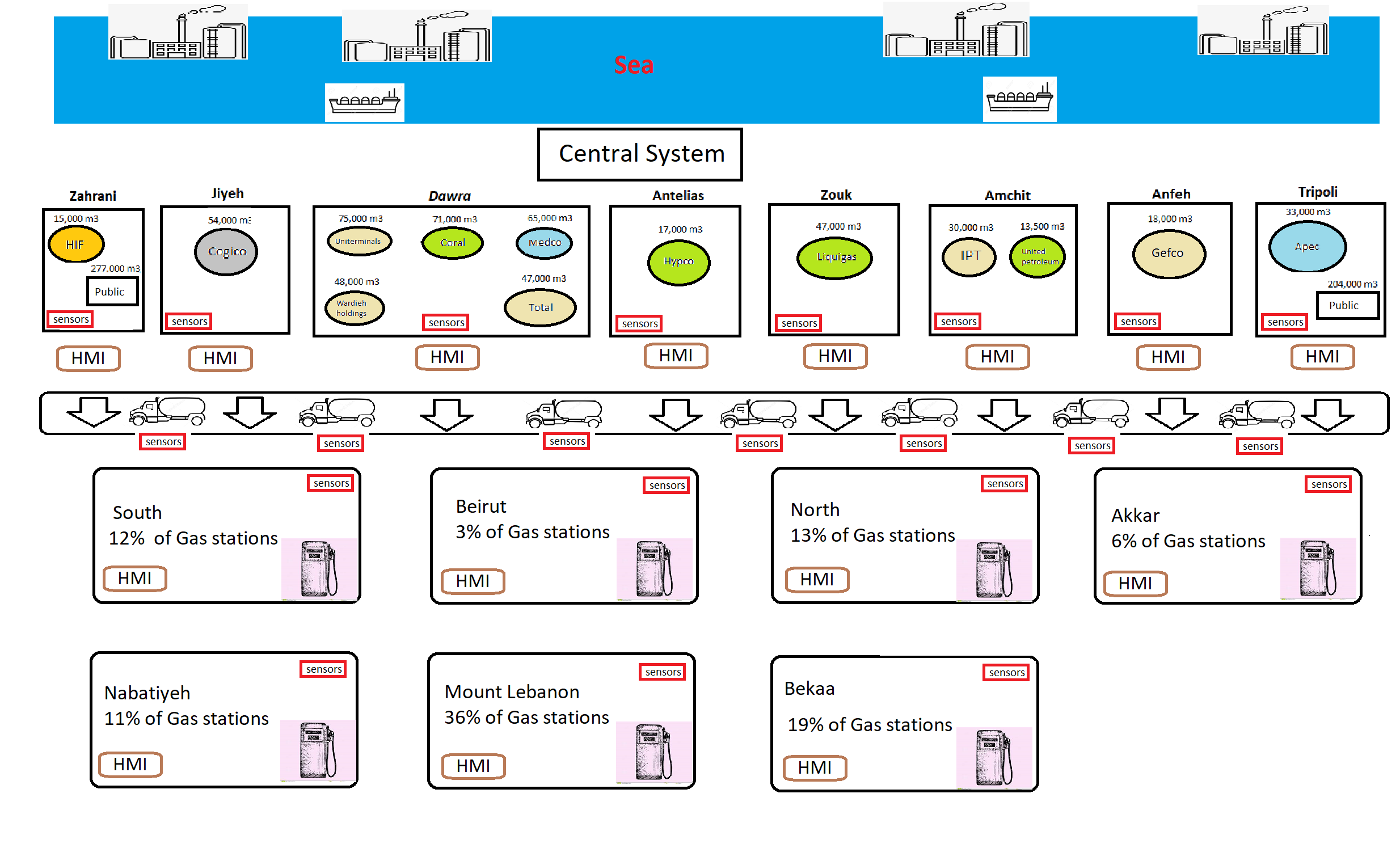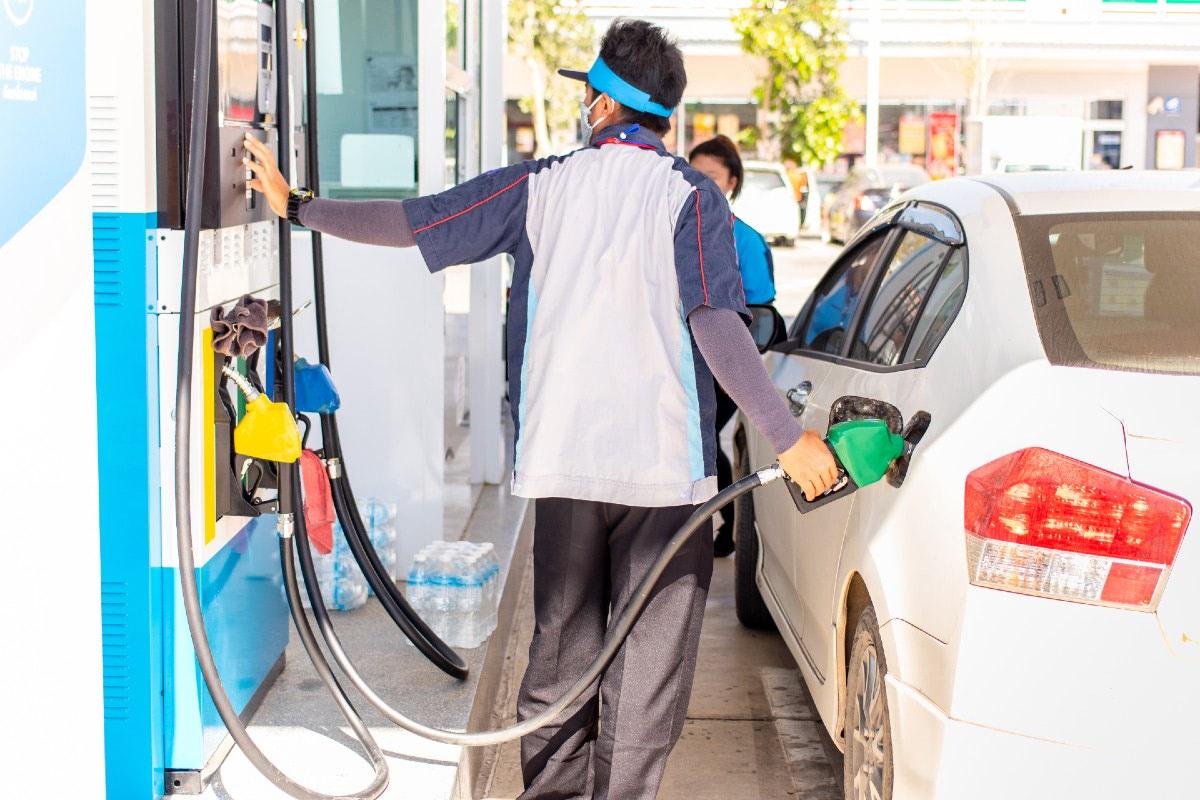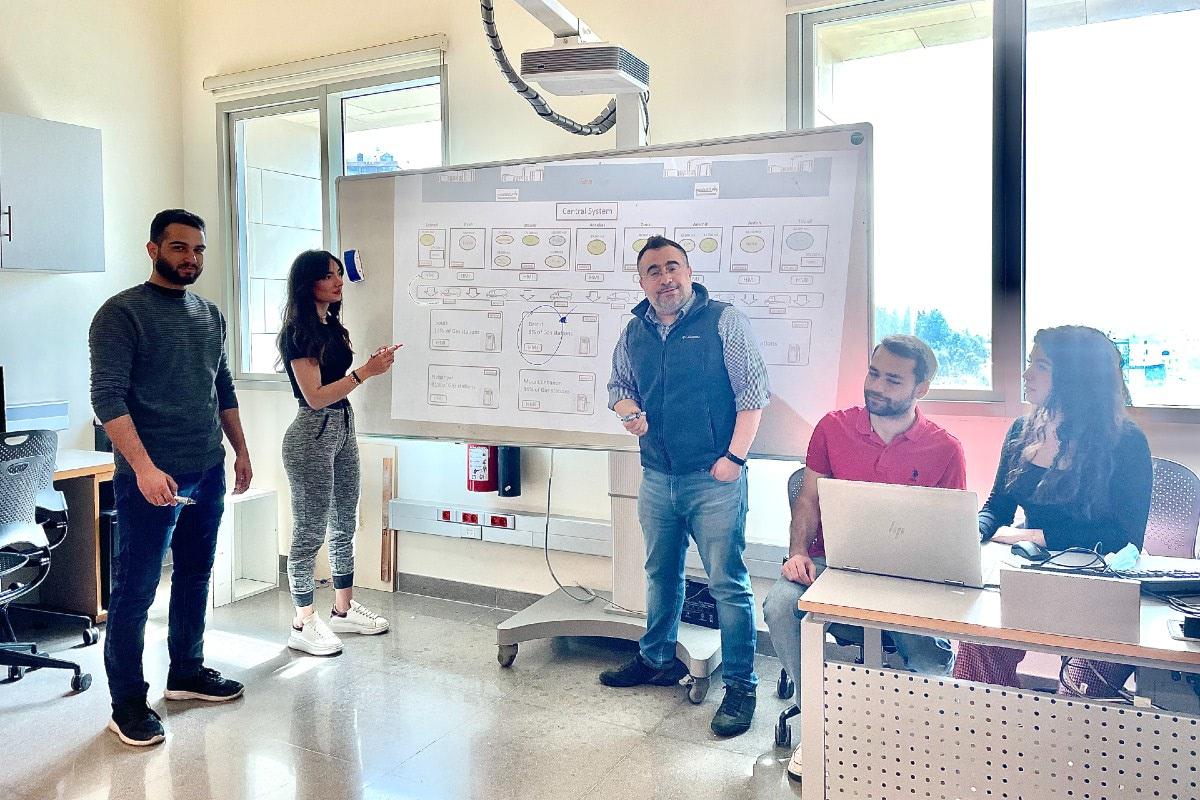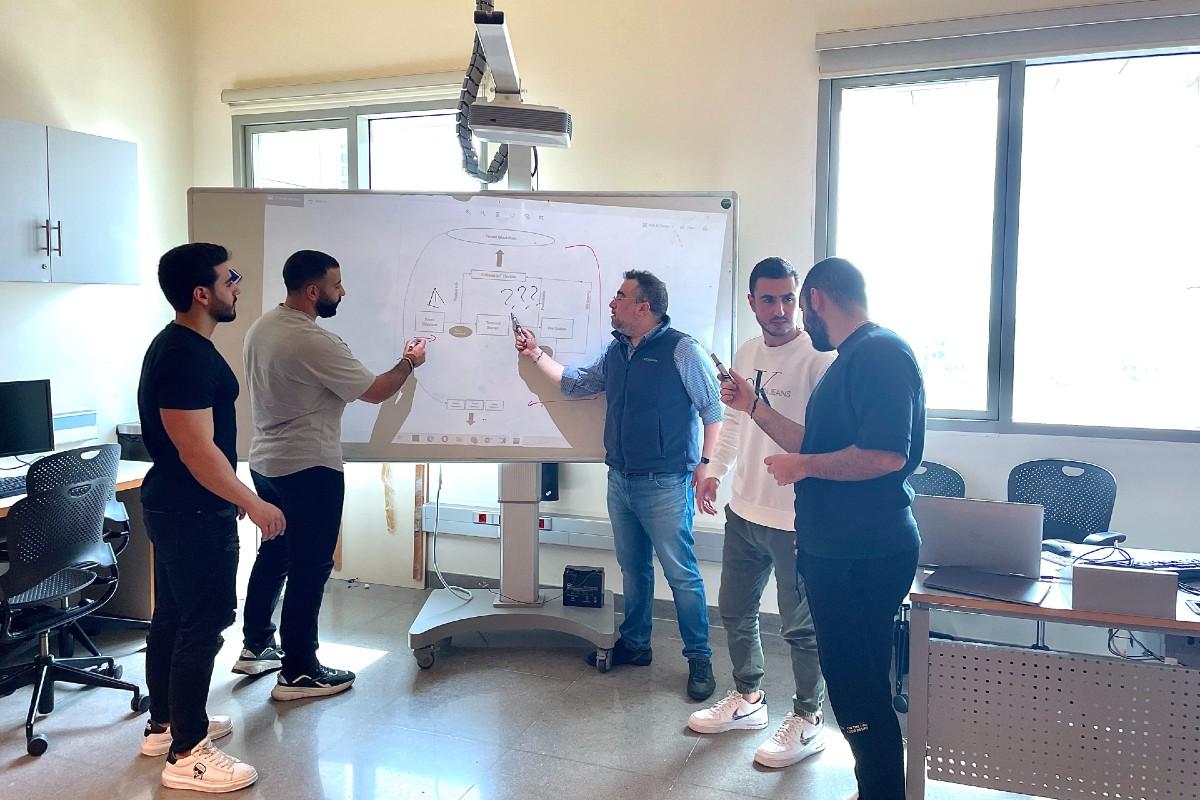Homegrown Hope for Reforming Gas Distribution
A smart gasoline distribution network designed by the SOE’s Dr. Nabil Nehme and his students leverages engineering expertise to solve a national problem.
The sight of long queues at Lebanese gas stations, which became ubiquitous during the summer of 2021, can be traced back to a number of problems that have long afflicted the country, from corruption and lack of transparency to an ailing infrastructure and a multi-layered financial, economic and currency crisis. In recent months, less foreseeable factors have further deepened the fuel shortage, causing the queues to resurface.
At LAU’s School of Engineering (SOE), Assistant Professor of Practice Nabil Nehme and his industrial engineering students sought to tackle the problem head on with an innovative solution: the design of a smart gas distribution network that tracks and monitors the commodity upon arrival in the country, all the way until it reaches the end users.
Their proposal constitutes a framework for restructuring facilities, inventories, transportation vehicles, information, sourcing and pricing – all key elements that directly influence the availability of gasoline to consumers.
“A pathway to build gasoline supply chain resilience in Lebanon,” as Dr. Nehme put it, the project “may be the entry point to encourage the government to develop smart distribution across other industries, and the key to promoting transparency and public equity.”
The initiative began as a capstone project for eight students. They collected data from scratch and led feasibility studies that covered multiple perspectives, from the technical, financial and legal to studying the psychology of the end user and even working to ensure data security. “Our students made the most of research tools and resources available to them – they are truly tomorrow’s leaders,” said Dr. Nehme.
First, they tracked discrepancies between the supply and demand of gasoline in Lebanon from 2009 to 2020, when demand constituted 77 percent of the imported gasoline supply. “In fact, supply has been constantly surpassing demand,” said senior student Zeina Chit.
“This inconsistency, coupled with the lack of data on where the surplus went,” explained senior student Nicole Samaha, “points to possible illegal activities.” That is why being able to trace the flow of gasoline in the supply chain system is of utmost importance and the focus of their project.
Senior student Ibrahim Samhoun explained how the data would be collected from a technical standpoint. By incorporating Human Machine Interfaces, Radio Frequency Identification technology and high-end sensors across storage facilities, as well as transportation vehicles and distribution gas stations, data can be collected, consolidated and synchronized at a central governmental data system.

“We refer to our solution as holistic, as it views and contributes to transforming the supply chain into a single, large interconnected unit,” noted Chit.
This plan, “which caters to transparency, inclusion and accountability by tracing all gasoline present on Lebanese soil would limit smuggling, hogging and money laundering activities, all while digitizing the sector,” said Dr. Nehme. In fact, this commitment to fighting corruption is at the very core of unlocking aid from international agencies, which will constitute the lifeline for Lebanon.
In addition, such a tool would “bolster the sector, and protect it from unforeseen challenges, such as changes in economic and political conditions,” added Chit.
Speaking about factors that pose a challenge to execution, senior student Mazen Chaaban named funding, overseeing and maintaining the equipment, as well as managing the large data sets and cyber security. However, he pointed out that many international organizations and foreign investors have expressed interest in providing support to Lebanon, especially as such a project would have tangible, long-term results.
“The project has immense benefits on a national scale, and the hurdles are not insurmountable. They can be preempted and overcome through strategic pitching, attracting proper funding and meticulous planning and supervision,” affirmed Chaaban.


